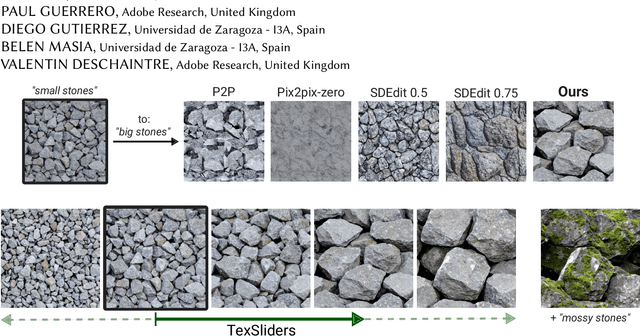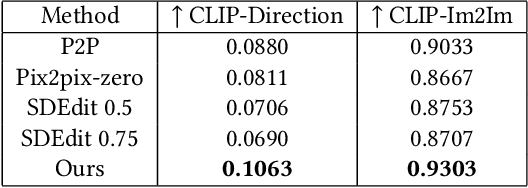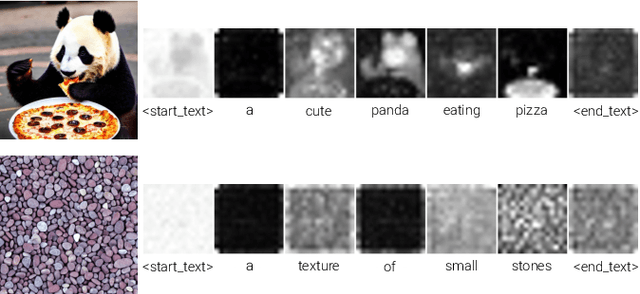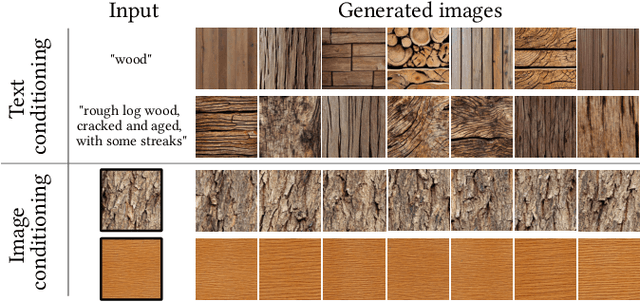TexSliders: Diffusion-Based Texture Editing in CLIP Space
Paper and Code
May 01, 2024



Generative models have enabled intuitive image creation and manipulation using natural language. In particular, diffusion models have recently shown remarkable results for natural image editing. In this work, we propose to apply diffusion techniques to edit textures, a specific class of images that are an essential part of 3D content creation pipelines. We analyze existing editing methods and show that they are not directly applicable to textures, since their common underlying approach, manipulating attention maps, is unsuitable for the texture domain. To address this, we propose a novel approach that instead manipulates CLIP image embeddings to condition the diffusion generation. We define editing directions using simple text prompts (e.g., "aged wood" to "new wood") and map these to CLIP image embedding space using a texture prior, with a sampling-based approach that gives us identity-preserving directions in CLIP space. To further improve identity preservation, we project these directions to a CLIP subspace that minimizes identity variations resulting from entangled texture attributes. Our editing pipeline facilitates the creation of arbitrary sliders using natural language prompts only, with no ground-truth annotated data necessary.
 Add to Chrome
Add to Chrome Add to Firefox
Add to Firefox Add to Edge
Add to Edge